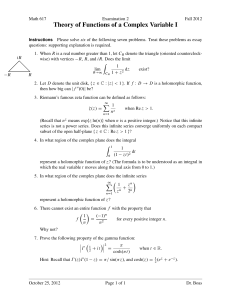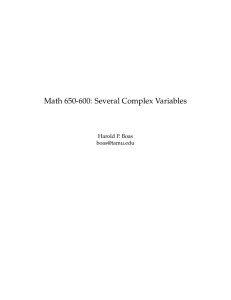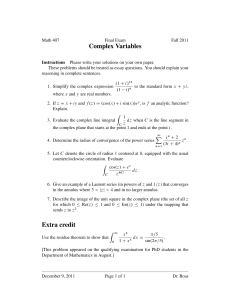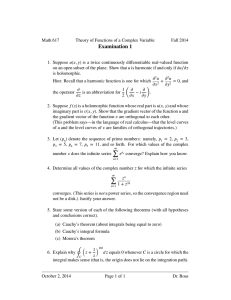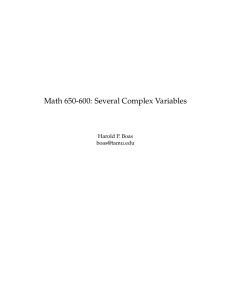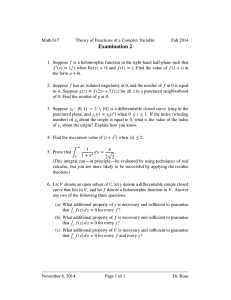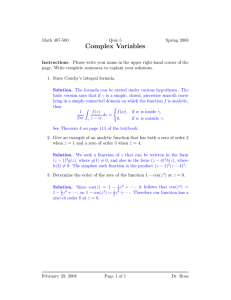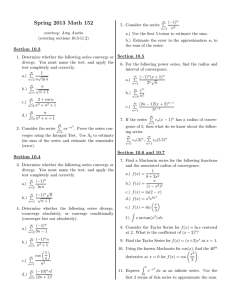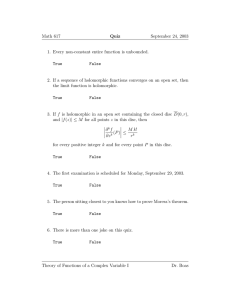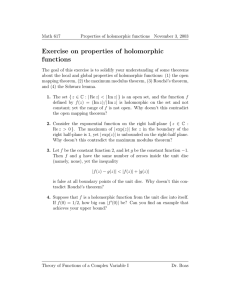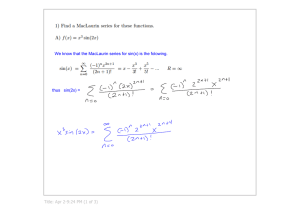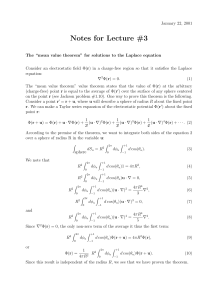Theory of Functions of a Complex Variable I
advertisement
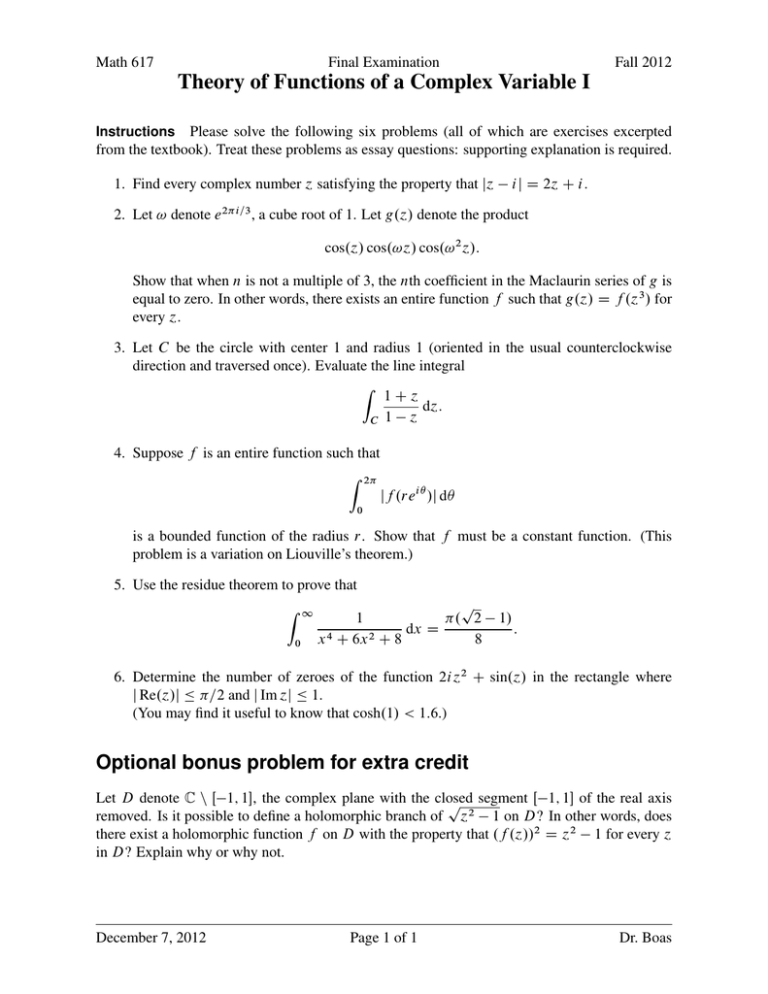
Math 617 Final Examination Fall 2012 Theory of Functions of a Complex Variable I Please solve the following six problems (all of which are exercises excerpted from the textbook). Treat these problems as essay questions: supporting explanation is required. Instructions 1. Find every complex number ´ satisfying the property that j´ i j D 2´ C i. 2. Let ! denote e 2 i=3 , a cube root of 1. Let g.´/ denote the product cos.´/ cos.!´/ cos.! 2 ´/: Show that when n is not a multiple of 3, the nth coefficient in the Maclaurin series of g is equal to zero. In other words, there exists an entire function f such that g.´/ D f .´3 / for every ´. 3. Let C be the circle with center 1 and radius 1 (oriented in the usual counterclockwise direction and traversed once). Evaluate the line integral Z 1C´ d´: ´ C 1 4. Suppose f is an entire function such that Z 2 jf .re i /j d 0 is a bounded function of the radius r. Show that f must be a constant function. (This problem is a variation on Liouville’s theorem.) 5. Use the residue theorem to prove that Z 0 1 p . 2 1 dx D x 4 C 6x 2 C 8 8 1/ : 6. Determine the number of zeroes of the function 2i´2 C sin.´/ in the rectangle where j Re.´/j =2 and j Im ´j 1. (You may find it useful to know that cosh.1/ < 1:6.) Optional bonus problem for extra credit Let D denote C n Œ 1; 1, the complex plane with the closed p segment Œ 1; 1 of the real axis removed. Is it possible to define a holomorphic branch of ´2 1 on D? In other words, does there exist a holomorphic function f on D with the property that .f .´//2 D ´2 1 for every ´ in D? Explain why or why not. December 7, 2012 Page 1 of 1 Dr. Boas
